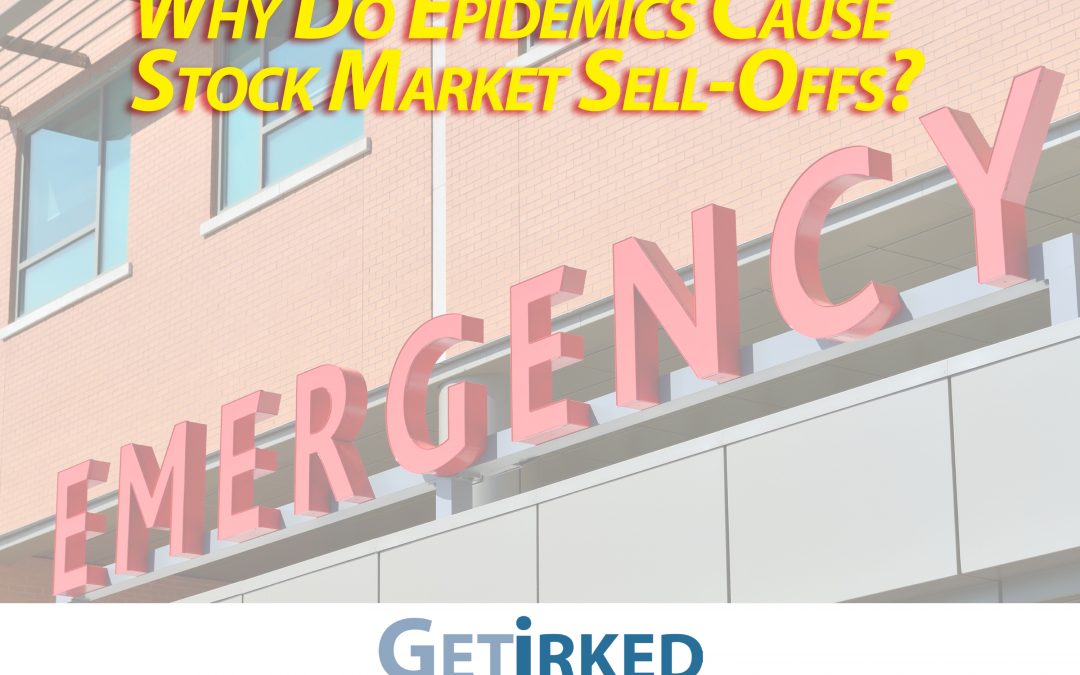Stocks can’t get sick. Why do they sell off?
Disease epidemics or pandemics cause markets to sell off because the global economy depends on the strength of consumer buying power.
When consumers fear contracting a potentially-deadly illness, they do not leave their homes and do not spend money.
This decrease in spending can have ripple affects on the entire global economy. Since stock markets are predictors of future growth and earnings of the companies the stocks represent, the potential negative effects of a disease – especially if when those effects are unknown – cause investors and traders to panic and sell.
How long does a selloff last? The Unknown Unknown
The majority of the sell-off will occur in the days or weeks before the global medical community gets their arms around a virus. This period of time is when the world is in an “uknown unknown” category; no one knows how severe the virus is, how to cure it, or anything else.
Where did “unknown unknowns” come from?
Donald Rumsfeld, the U.S. Secretary of Defense for President George W. Bush, famously answered a reporter’s question about a military situation with the following statement:
“There are known knowns; these are things we know we know. We also know there are known unknowns; that is to say we know we do not know. But there are also unknown unknowns – the ones we don’t know we don’t know. And if one looks throughout the history of our country and other free countries, it is the latter category that tend to be the difficult ones.”
The stocks of companies which will permanently lose sales due to an epidemic suffer the most. Since a new virus is an “unknown unknown,” how many sales a company will lose over the life of the virus causes investors to panic.
Companies who will not lose sales tend to bounce back the quickest. A consumer interested in buying a new mobile phone, for example, will likely still do so following the epidemic.
However, any daily purchases such as a daily cup of coffee or lunchtime meal cannot be regained and directly impact a company’s earnings, since a customer who skips buying a cup of coffee today doesn’t buy two tomorrow to make up for the lost purchase. Multiply this loss of a sale by days or weeks and it’s easy to see how a virus scare can dramatically damage company earnings.
Specific sectors that typically see the most pain during virus outbreaks include travel-related stocks such as hotels, airlines, and cruise-lines; any experiential stocks such as theme parks, movie theaters, and casinos; and almost all restaurant stocks.

Disclaimer: Eric "Irk" Jacobson and all other Get Irked contributors are not investment or financial advisers. All strategies, trading ideas, and other information presented comes from non-professional, amateur investors and traders sharing techniques and ideas for general information purposes.
As always, all individuals should consult their financial advisers to determine if an investing idea is right for them. All investing comes with levels of risk with some ideas and strategies carrying more risk than others.
As an individual investor, you are accountable for assessing all risk to determine if the strategy or idea fits with your investment style. All information on Get Irked is presented for educational and informational purposes only.


You must be logged in to post a comment.